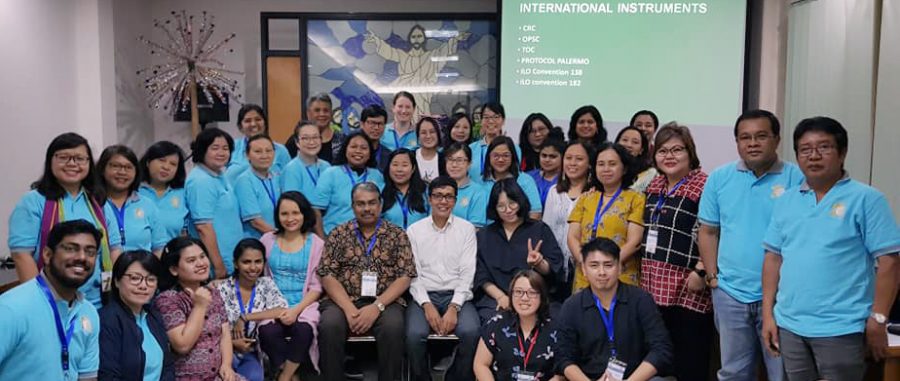Asia consultation urges CCA to initiate regional network on child rights advocacy
 Participants after a Workshop Session on the final day
Participants after a Workshop Session on the final day
A representative group of Asian churches that participated in the Asia regional consultation on upholding the dignity and rights of children proposed that the Christian Conference of Asia (CCA) initiate and facilitate an Asia regional ecumenical advocacy network on dignity and rights of Children.
In responding to the proposal by the participants to initiate an Asian ecumenical network to protect the rights and dignity of children, CCA General Secretary Dr. Mathews George Chunakara said that CCA would explore possible options to facilitate an Asia Advocacy Network on Dignity and Rights of Children (AANDRoC).
CCA General Secretary further added, “The proposal and suggestion that emerged from the participants reflect the successful outcome of the consultation and the efforts of CCA to sensitise the churches to motivate them in taking their engagements in child rights advocacy more seriously”.
The consultation organised by the CCA and hosted by the Gereja Protestan di Indonesia Bagian Barat (GPIB) was held at the headquarters of the GPIB in Jakarta, Indonesia from 16 to 20 September 2018.
A Communique adopted and issued by the participants towards the end of the consultation urged churches and ecumenical councils in Asia to facilitate advocacy initiatives at the national levels to influence governments for protecting the rights of children, and collaborate with other faith based and civil society organisations to work with inter-governmental organisations at the regional and international levels in promoting child rights.
The communique also affirmed that the desire for life in all its richness and fullness was the most powerful instinct in human beings. Therefore, churches in Asia were called to be engaged in participating in God’s mission and prophetic witnessing of protecting the rights of children.
The participants also urged churches to develop policies on participation of children in decision making process as an utmost priority, and use the curriculum of Christian education programmes of churches as a means of promoting and upholding the dignity of children.
The need to create awareness among parents and children about the negative impacts of the digitalised world and initiatives to develop child-friendly as well as rights-based programmes in local congregations was also affirmed as a priority.
The consultation was attended by about 60 participants representing churches, national councils of churches, civil society organisations, United Nations related organisations, child rights activists and social workers.
‘Komunitas Sahabat Anak’, a community organisation working for the welfare of street children and trafficked children in Indonesia, facilitated an exposure programme for the participants towards the end of the consultation.
Click here to download Communique-Dignity-of-Children.pdf










